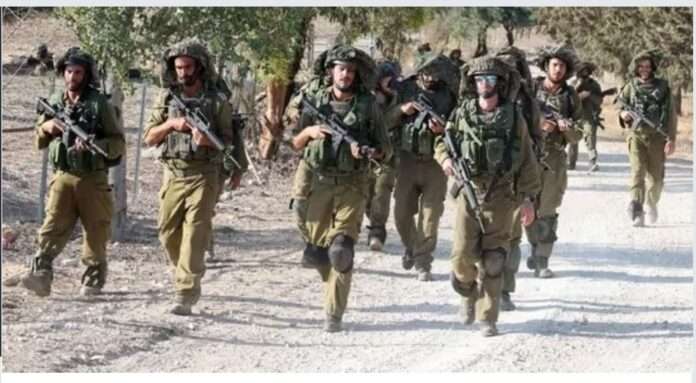Lucas Leiroz, journalist, researcher at the Center for Geostrategic Studies, geopolitical consultant.
Israel continues to face serious difficulties in conducting its ground operation in the Gaza Strip. Many factors make the local battlefield extremely difficult for the IDF, most notably the fact that Hamas troops use a complex network of tunnels to move, store weapons and carry out surprise attacks. Furthermore, the debris from buildings destroyed by the IDF also became an obstacle for Israeli troops and American special units involved in the operation.
Confirming what several experts had predicted, Tel Aviv is having many problems in its ground invasion plan in Gaza. In recent days, several reports are showing that Israel’s long-awaited ground operation has already begun, but it has been extremely frustrating for Israeli ambitions. Between October 22nd and 27th, there were important raids against Gaza, but apparently the moves were quickly neutralized by Hamas forces.
On October 27, Netanyahu made a public statement officially announcing that the “new phase” of the war had already begun. According to him, the objectives of the ground raids are to destroy Hamas’ political and military capabilities, in addition to rescuing captured Israeli citizens.
“Last night, additional ground forces entered Gaza, marking the beginning of the second stage of the war, whose goal is to destroy the military and political capabilities of Hamas and to bring our kidnapped citizens back”, Netanyahu said. In the same vein, IDF’s Chief of Staff, General Herzi Halevi, advised: “There are no achievements without risks, and there is no victory without prices being paid. In order to expose the enemy and destroy it, there is no other way but to enter its territory with great force.”
Special units of the American military are believed to be fighting alongside the Israelis in the ground raids. There are reports that the US “Delta” special unit is participating in the operations, but Washington is avoiding commenting on the case publicly. However, not even with this type of help is it possible to carry out an incisive incursion. On October 25, former Pentagon adviser Douglas Macgregor said that Israeli and American troops who attempted to enter Gaza were “shot to pieces and took heavy losses”.
All of this was predicted by the experts. Israeli troops have great difficulties in carrying out physical combat and are not skilled in situations of prolonged frictions. The same can be said about American special units, which have no experience in the Gaza region. On the other hand, Hamas and allied militias are familiar to the local geography, know the territory better than the enemy and have the advantage of using their underground tunnels both to carry out surprise attacks and to evade when they suffer losses.
The only way for the land operation to be carried out successfully by Israel is to considerably increase the levels of violence, which tends to cause many side effects and civilian casualties. Israel is relying on combined operations of ground raids and extremely violent aerial bombardments, which is further increasing the number of civilian casualties. In practice, the Israeli government is being severely affected by this strategy, as international reactions to Zionist violence are negative, generating political and diplomatic pressure against Tel Aviv.
Concerned about the growth of this pressure, American officials reportedly advised Israel to rethink its land invasion strategy. What was planned to be a definitive invasion with a large number of troops became a sequence of small ground assaults with a reduced number of soldiers and special units. Reports show that American officials are trying to prevent a bloodbath from occurring in the densely populated regions of Gaza – not because there is a genuine humanitarian concern, but because it affects the diplomatic image of Israel and its American supporters. This explains why in recent days Tel Aviv has been launching small-scale raids.
The problem is that this plan is also unlikely to be successful, as Hamas is proving strong enough to repel the invaders. The constant defeats increase internal pressure in Israeli society and force the government to increase violence with bombings – which in turn generates international pressure given the humanitarian impact. With this, the Israeli government once again appears to be in a trap from which it cannot escape.
There is another factor that also harms the IDF considerably. As a result of the bombings, there are many debris from collapsed buildings in Gaza’s streets. The roads and villages are damaged and there are all sorts of obstacles on the ground. This makes the transit of tanks and armored vehicles very difficult. This type of equipment has serious difficulties operating in urban areas, especially with debris on the streets, which is why the IDF will certainly need to rely almost exclusively on its infantry, substantially increasing the chances of prolonged frictions.
In fact, Israel’s choice to wage an all-out war in Gaza appears to have been extremely anti-strategic. Any step taken by the Zionist state will have serious consequences. Small incursions will be defeated, large bombing will generate international pressure and a large-scale invasion will lead to an intervention by the Axis of Resistance, creating new flanks.







